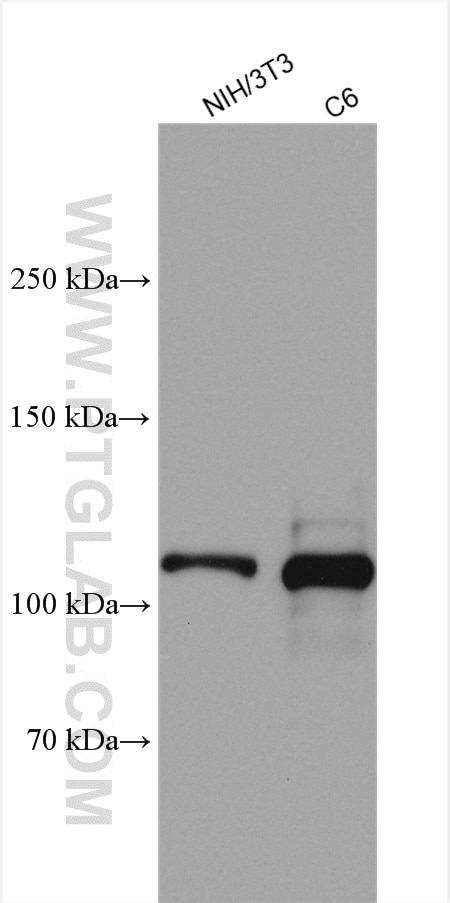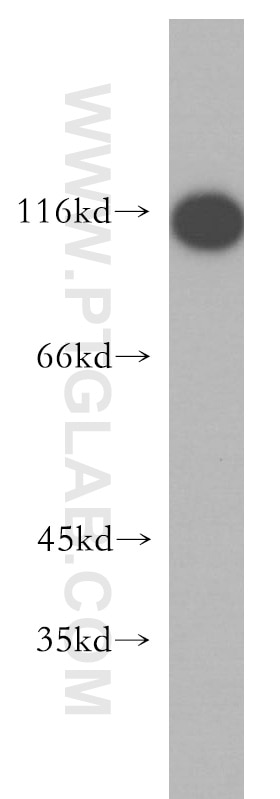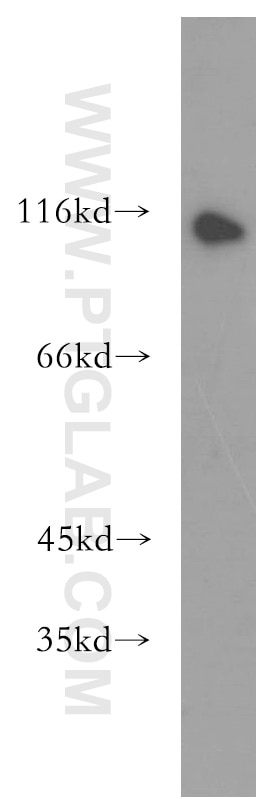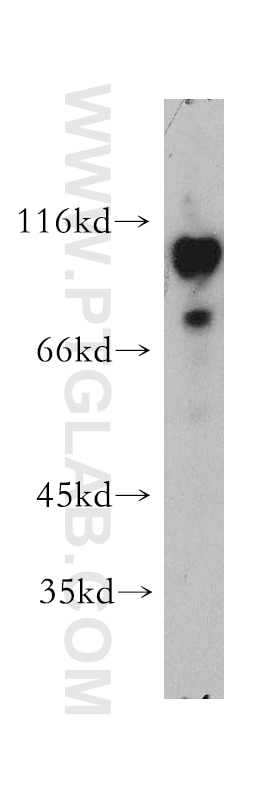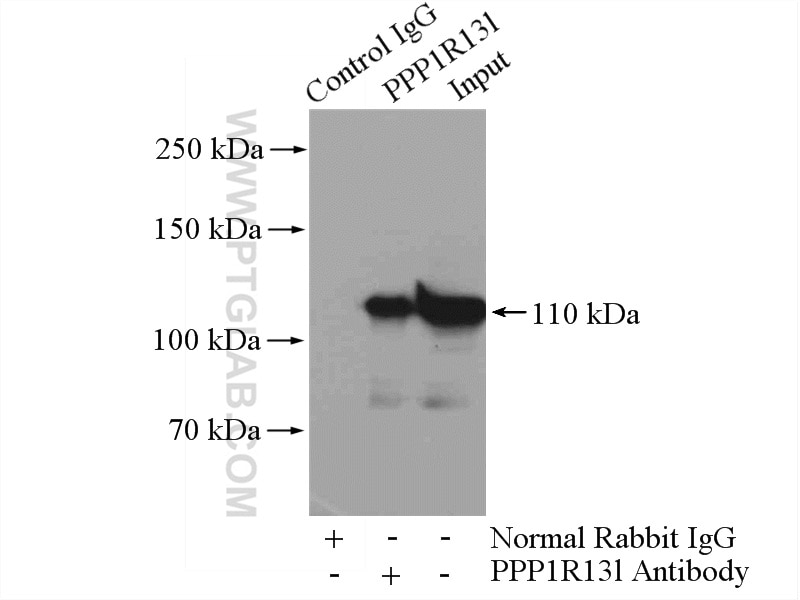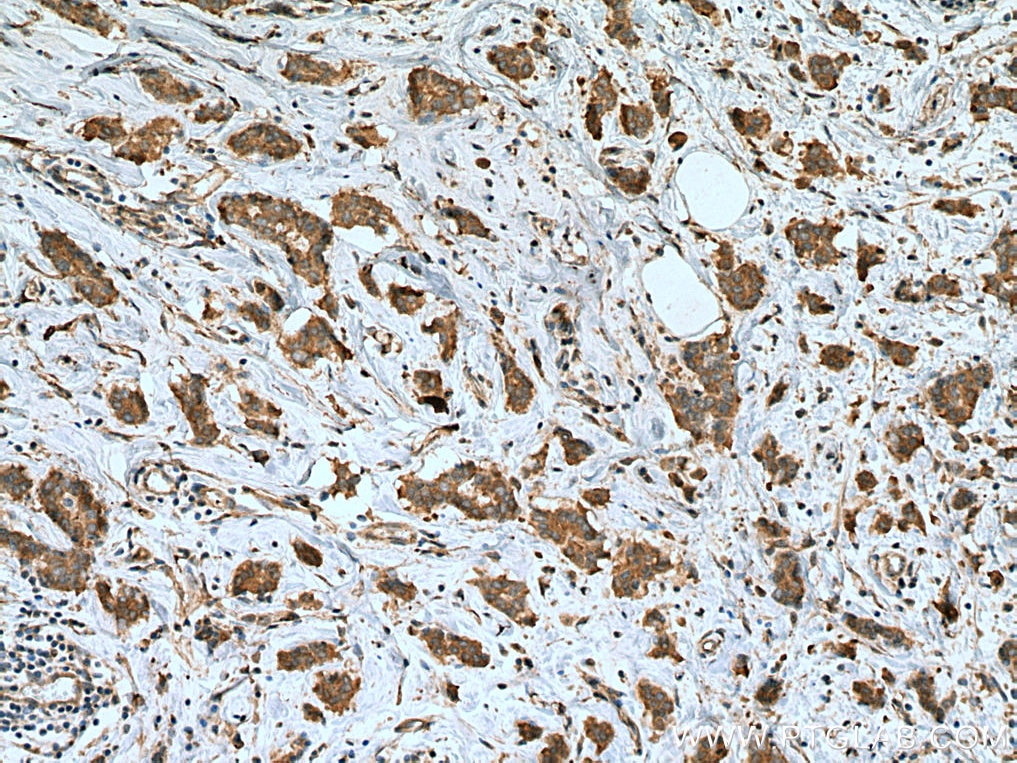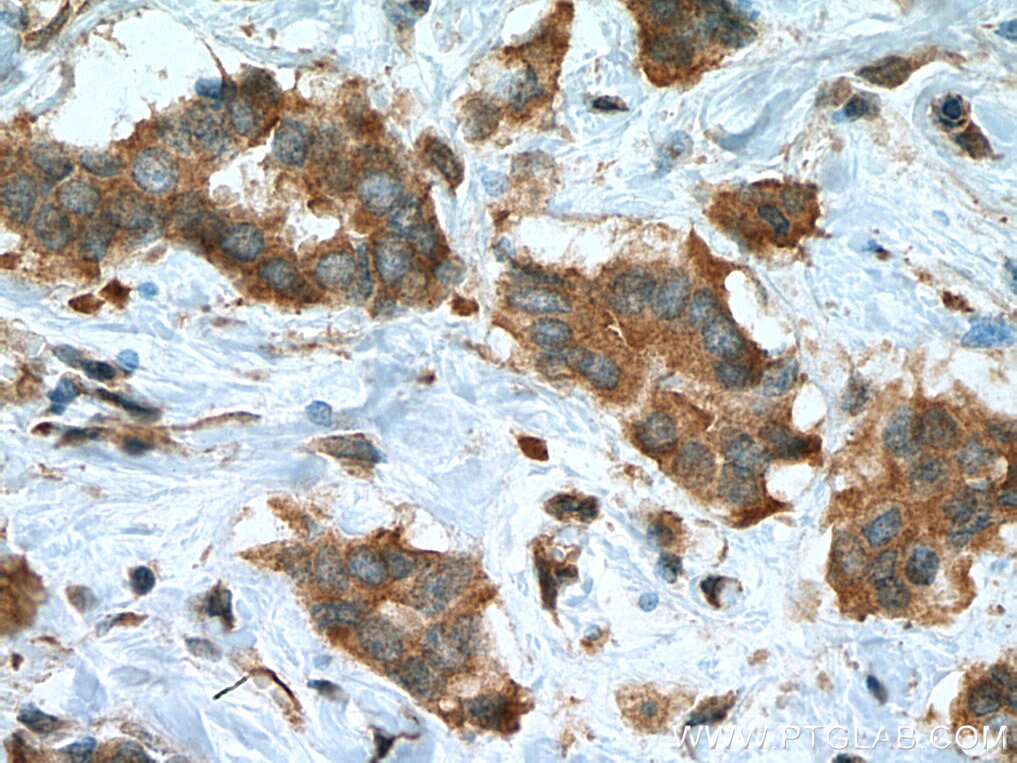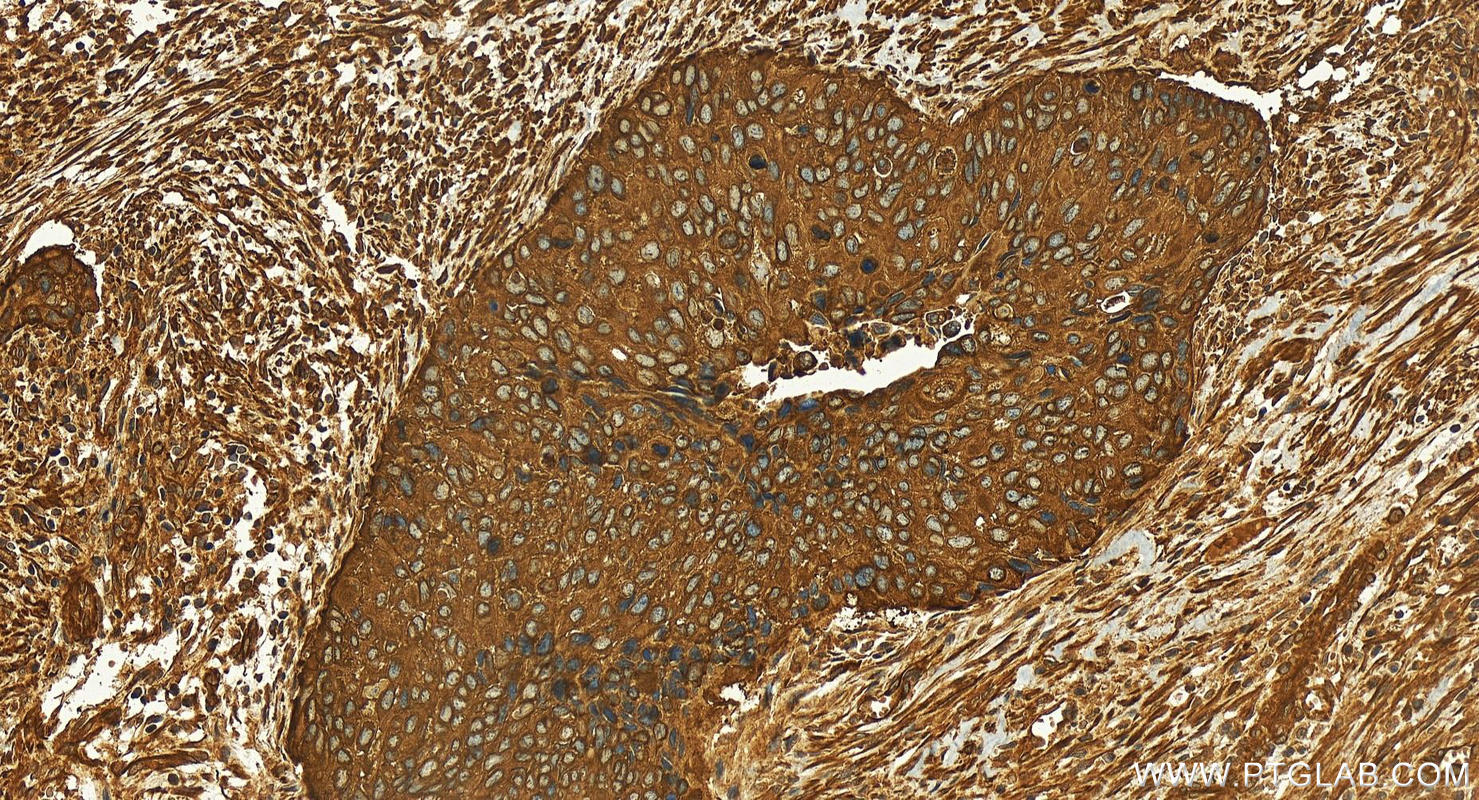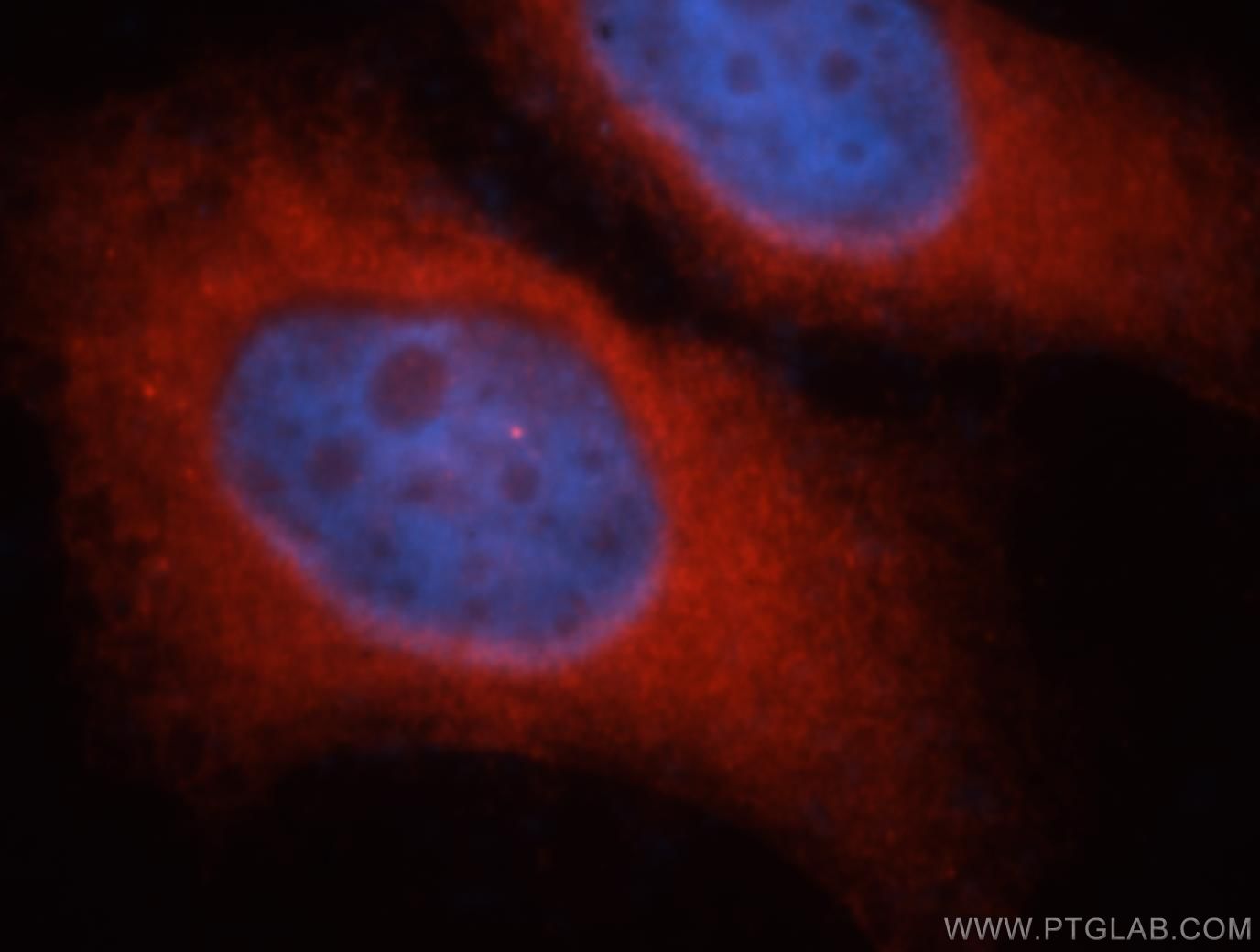Validation Data Gallery
Tested Applications
| Positive WB detected in | NIH/3T3 cells, PC-3 cells, MCF-7 cells, Apoptosised HeLa cells, C6 cells |
| Positive IP detected in | PC-3 cells |
| Positive IHC detected in | human breast cancer tissue, human cervical squamous cancer tissue Note: suggested antigen retrieval with TE buffer pH 9.0; (*) Alternatively, antigen retrieval may be performed with citrate buffer pH 6.0 |
| Positive IF/ICC detected in | MCF-7 cells |
Recommended dilution
| Application | Dilution |
|---|---|
| Western Blot (WB) | WB : 1:1000-1:4000 |
| Immunoprecipitation (IP) | IP : 0.5-4.0 ug for 1.0-3.0 mg of total protein lysate |
| Immunohistochemistry (IHC) | IHC : 1:400-1:1600 |
| Immunofluorescence (IF)/ICC | IF/ICC : 1:10-1:100 |
| It is recommended that this reagent should be titrated in each testing system to obtain optimal results. | |
| Sample-dependent, Check data in validation data gallery. | |
Published Applications
| KD/KO | See 3 publications below |
| WB | See 5 publications below |
| IF | See 2 publications below |
| IP | See 2 publications below |
Product Information
18590-1-AP targets iASPP in WB, IHC, IF/ICC, IP, ELISA applications and shows reactivity with human, mouse, rat samples.
| Tested Reactivity | human, mouse, rat |
| Cited Reactivity | human, mouse |
| Host / Isotype | Rabbit / IgG |
| Class | Polyclonal |
| Type | Antibody |
| Immunogen | iASPP fusion protein Ag13273 相同性解析による交差性が予測される生物種 |
| Full Name | protein phosphatase 1, regulatory (inhibitor) subunit 13 like |
| Calculated molecular weight | 89 kDa |
| Observed molecular weight | 110 kDa |
| GenBank accession number | BC064913 |
| Gene Symbol | PPP1R13L |
| Gene ID (NCBI) | 10848 |
| RRID | AB_2168573 |
| Conjugate | Unconjugated |
| Form | Liquid |
| Purification Method | Antigen affinity purification |
| UNIPROT ID | Q8WUF5 |
| Storage Buffer | PBS with 0.02% sodium azide and 50% glycerol , pH 7.3 |
| Storage Conditions | Store at -20°C. Stable for one year after shipment. Aliquoting is unnecessary for -20oC storage. |
Background Information
Inhibitor of apoptosis-stimulating protein of p53 (iASPP), encoded by PPP1R13L gene, is often overexpressed in human cancers. The ASPP family includes three members, namely ASPP1, ASPP2, and iASPP, which are specific regulators of p53-, p63-, and p73-mediated apoptosis. ASPP1 and ASPP2 enhance the apoptotic function of p53, whereas iASPP specifically inhibits p53-mediated apoptosis. Overexpression of iASPP is associated with resistance to cisplatin-induced apoptosis and rediation therapy. iASPP plays a pivotal role in regulating cancer cell proliferation and tumor progression. This antibody could both recognize unphosphorylated and phosphorylated iASPP.
Protocols
| Product Specific Protocols | |
|---|---|
| WB protocol for iASPP antibody 18590-1-AP | Download protocol |
| IHC protocol for iASPP antibody 18590-1-AP | Download protocol |
| IF protocol for iASPP antibody 18590-1-AP | Download protocol |
| IP protocol for iASPP antibody 18590-1-AP | Download protocol |
| Standard Protocols | |
|---|---|
| Click here to view our Standard Protocols |
Publications
| Species | Application | Title |
|---|---|---|
J Cell Biol iASPP contributes to cell cortex rigidity, mitotic cell rounding, and spindle positioning.
| ||
Cell Death Dis iASPP-PP1 complex is required for cytokinetic abscission by controlling CEP55 dephosphorylation.
| ||
J Biochem Mol Toxicol Upregulation of iASPP ameliorates hypoxia/reoxygenation-induced apoptosis and oxidative stress in cardiomyocytes by upregulating Nrf2 signaling.
| ||
Metab Brain Dis Inhibitor of apoptosis stimulating protein of p53 protects against MPP+-induced neurotoxicity of dopaminergic neurons | ||
Acta Biochim Biophys Sin (Shanghai) iASPP protects the heart from ischemia injury by inhibiting p53 expression and cardiomyocyte apoptosis. | ||
Cell Death Dis High iASPP (PPP1R13L) expression is an independent predictor of adverse clinical outcome in acute myeloid leukemia (AML) |
